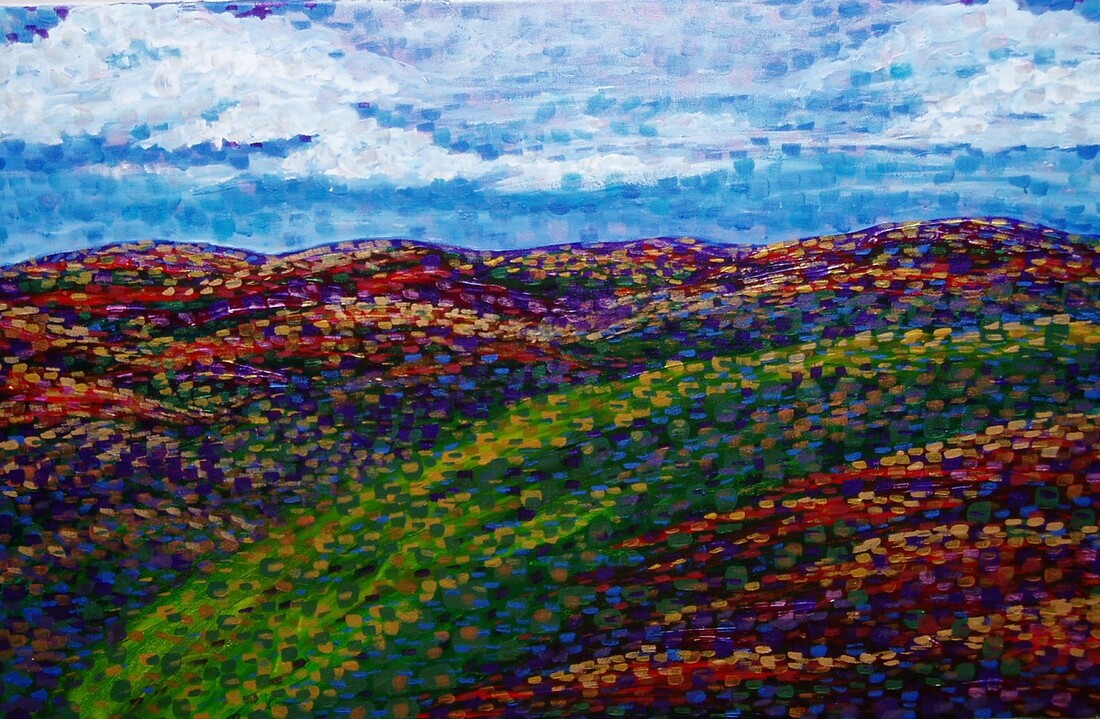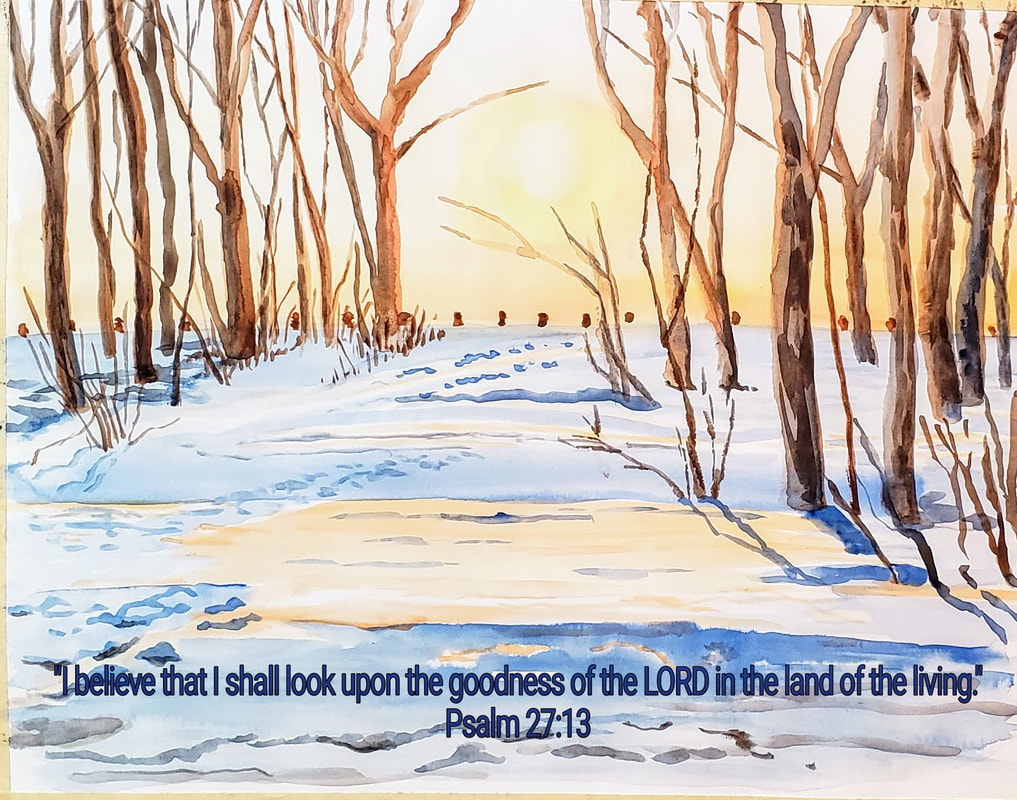|
1 Timothy 6:6-12, 14-16
6Of course, godliness with contentment is great gain. 7For we brought nothing into the world, so we cannot carry anything out of it. 8But if we have food and clothing, we will be content with these. 9Those who want to be rich, however, fall into temptation and become ensnared by many foolish and harmful desires that plunge them into ruin and destruction. 10For the love of money is the root of all kinds of evil. By craving it, some have wandered away from the faith and pierced themselves with many sorrows. 11But you, O man of God, flee from these things and pursue righteousness, godliness, faith, love, perseverance, and gentleness.12Fight the good fight of the faith. Take hold of the eternal life to which you were called when you made the good confession before many witnesses. 14Keep this commandment without stain or reproach until the appearance of our Lord Jesus Christ, 15which God will bring about in His own time--He who is blessed and the only Sovereign One, the King of kings and Lord of lords.16He alone is immortal and dwells in unapproachable light. No one has ever seen Him, nor can anyone see Him. To Him be honor and eternal dominion! Amen. In this passage the perspective that God wants us to have, and which will bring contentment, is vastly different from natural/worldly desires. The key is found in the brief prayer in verses 15b and 16. Paul, inspired by the Holy Spirit, bursts into praise of our glorious King of kings. To really be content, to be able to fight the good fight and flee from foolish and harmful desires and pursue godliness, we need to really know our Creator and find in Him our identity and purpose. To know Him and grow in our relationship, and then confess this before witnesses in our life as well as words, is our calling. One of the ways to know God more deeply is to learn what He has revealed about Himself in Scripture and to pray through those Scriptures that the Holy Spirit will make them come alive. There are more than 100 names of God recorded in the Bible and each one reveals something precious and amazing about our majestic, loving King and Lord. How marvelous that He who called each star into being by name, and who knew each of our names and every hair we would ever have on our head before anything was created, loves us enough to die for us! He wants to redeem us so we can be in His eternal family. How utterly glorious! Conversations at the grocery store used to end with “Have a nice day.” Now the brave people working exits advise me to “Be safe.” This pandemic has toppled our security props. And so we wonder, “Can we actually keep ourselves safe?”
One of my favorite picturebooks tells a story[1] using the metaphor in Psalm 91: He will cover you with his feathers, and under his wings you will find refuge. The story is set on a prairie farm, just like the one of my childhood. On this farm lived a hen with a brood of chicks. One day the unthinkable happened; a fire destroyed the barn. When the farmer went out to investigate the damage he found the charred hen. Upon removing her burned carcass, the little chicks that had found refuge underneath their mother scurried away. What a marvellous picture of Jesus’ sacrifice for us on the cross! He gave up his life so we can have eternal life. But that is not the end of God’s protective work. Our God, who loved us so much he sent his Son to die for us, through his unlimited power, raised his Son from the dead. God offers protection that powerful to us. Psalm 91 is for us today, in the middle of a pandemic. Read all of Psalm 91 to discover just how relevant it is. Should we ignore safety protocols to show we believe in God’s protection? Jesus didn’t. In Matthew 4 the devil suggested that Jesus should show he was God by jumping off the top of the temple. He even used Scripture making his temptation sound spiritual. The devil ignored context and took a quote from Psalm 91 that fit his purpose: God will order his angels to protect you…so you won’t even hurt your foot on a stone. How did Jesus respond? Don’t test the LORD your God. So we are prudent but not afraid. This is where Psalm 91 starts: Whoever dwells in the shelter of the Most High will rest in the shadow of the Almighty. We know that whatever happens to those who love God is for their good (Romans 8:28). Now that is ultimate safety! [1] The Little Red Hen was one of thirteen original pamphlets published in 1945 as part of the Illustrated Gospel Series, also known as “The McCague Lessons.” A few blogs ago I wrote that this Covid was a Lenten time. But there’s another view, among many.
On the seventh day, God rested from all his work. (Gen. 2:2b) The Creator looked at what reflected His beauty and splendour and wonder, loved the results, and said so! Then -- He rested. Perhaps this bleak, upside-down time is Sabbath. “Sabbath”? The dictionary says “a day of religious observance and abstinence from work, kept by Jews from Friday evening to Saturday evening, and by most Christians on Sunday.” But the first place we read "Sabbath" (from the Hebrew verb shabbat, "to rest from labor"; the day of rest, the seventh day), is in Exodus 16:23. To give his human creatures His rest, He insists in His life-rules, that Sabbath is also holy. (Our culture blithely ignores this.) “Holy”? It means “separated, set apart”. God is holy; in Him we are made holy, and His gift of rest is holy. We “shabbat” -- in Him. We are apart yet held together by worship with other believers; to listen to, consider, live His word; confess our failures, and remember Christ’s sacrifice in bread and wine. The day is His, lovingly made for His children. So how did Covid become Sabbath, in my tangled brain? Where is Sabbath in this distressing time? We worship: through a glass dimly. We obey authority: Stay home. Slow down. Revise routines. Wash hands, lots. Travel less. We realize: God walks with us. We need one another. We adapt. We stop: no church, fellowship, Eucharist, hugs; virtual a poor substitute for real. It’s a hard rest, but others have it harder. For people without work or home, those ill with the virus, loved ones dying alone in institutions, their families severed from farewells… we mourn. For them, it’s still Lent. For medical staffs, retail clerks, drivers, mums, health care workers, emergency workers, Covid offers no Sabbath. So we thank God for them, encouraging in creative ways -- singing from balconies or in virtual choirs, banging pots, praying for them, saying, “Thank you.” We acknowledge our common helplessness and share our gifts as we can. While conspiracy theories abound; along with the usual media frenzy, grace is given to rest quietly in him, in prayer, in confidence, in peace. Let the theorists foam at the mouth. God is doing something new -- if we care to look. Isolated with God, we consider the lonely and ill, help where we can, bear one another up, pray for one another, connect by phone or email or Zoom, look for ways to offer love, reconsider our lives, tell others about Him, see with new eyes. Always, thankful for God’s so-much in this lean, tough time. It’s a grind, this rejigging of the familiar, this absence from normal. Yet it’s an opportunity to discover anew God’s holy way, a stilling time. By His grace, Covid just might offer Sabbath rest. Oswald Chambers observes: "The Sermon on the Mount is not a set of principles to be obeyed apart from identification with Jesus Christ. The Sermon on the Mount is a statement of the life we will live when the Holy Spirit is getting his way with us." (quoted in Dallas Willard, The Spirit of the Disciplines, p. 3).
Today offers an extraordinary opportunity for us to pray for Muslims. It’s the 20th day of Ramadan, the month-long fast, and for sincere Muslims (and there are many), it is an important night. Even as I write, and because of Covid, Muslims are praying at home through live streaming – the area around the Kaa’bah in Mecca, where traditionally they would come to worship Allah (the Hajj, one of the five piilars of Islam), is empty.
This month, I’ve followed the onlne “Prayercast”, a daily information and request for prayer for regions, cities and rulers in the Muslim world, explains the significance of this night for Muslim people. In its Prayer Points section, we pray they would find Jesus. Laylat al-Qadr is believed to be the night in which heaven is opened and God responds to prayer in a way unlike any other night of the year. Many believe, from Surah [Chapter] 97, that this one night is more spiritually blessed than a thousand months – 83 years – an entire lifetime! Some Muslims believe that Allah sets in motion his good decrees for each year during Laylat al-Qadr, which can also be translated “The Night of Destiny.” An often-cited Hadith, a traditional saying of Muhammad, says: “Whoever establishes the prayers on Laylat al-Qadr out of sincere faith and hoping to attain Allah’s rewards, then all his past sins will be forgiven” (Bukhari 1.2.34). ... Laylat al-Qadr is a celebration of the giving of the Quran. Muslims believe that Allah sent the entire Quran down from the seventh heaven to the first heaven during Laylat al-Qadr (the Night of Power). Then the angel Gabriel progressively revealed it to Muhammad over 23 years, from 610-632 AD. Why am I writing this? Because it is a prime opportunity to begin to pray for these millions of people made in the image of God. Dreams and visions are not unusual for Muslims, and many of these have turned them to Christ. If you have Muslim neighbours, friends, co-workers, and if you are reading this, trust that our God, more powerful and loving than we can imagine, will bring many Muslims to Jesus. I am full of praise and it is bubbling over. I wrote a poem on Palm Sunday that I want to share even though it isn’t a good one in the literary sense. Along with it I have on my heart the hymn I have included below in a contemporary version whose words are much more poetic (included so you can follow along).
Hallelujah to the King of Kings (By Elizabeth Kroeker) Were every blink of my eyes exuberant praises with palms And every heartbeat thunderous clapping If every breath sang out gloriously sublime psalms And every throbbing nerve impulse exalting Were every penny of my life offered as thankful alms If every word of my lips rose as fragrant prayer balms And every joyful tear a diamond glorifying I would still want all the rocks, trees and mountains To raise their voices and join me in singing Hallelujah to the King of Kings Use this link to hear the song: Praise, my soul, the King of Heaven by Henry Francis Lyte https://www.youtube.com/watch?v=W2jscflvzTk Praise, my soul, the King of heaven Author: Henry Francis Lyte (1834) Tune: LAUDA ANIMA (Goss) 1 Praise, my soul, the King of heaven; to his feet your tribute bring. Ransomed, healed, restored, forgiven, evermore His praises sing. Praise Him! Praise Him! Praise the everlasting King! 2 Praise Him for his grace and favor to his people in distress. Praise Him, still the same as ever, slow to chide, and swift to bless. Praise Him! Praise Him! Glorious in His faithfulness! 3 Fatherlike He tends and spares us; well our feeble frame He knows. In His hand He gently bears us, rescues us from all our foes. Praise Him! Praise Him! Widely yet his mercy flows! 4 Angels, help us to adore Him; you behold Him face to face. Sun and moon, bow down before Him, dwellers all in time and space. Praise Him! Praise Him! Praise with us the God of grace! Praise Him! Praise Him! Praise with us the God of grace! "Lift up your heart to Him. The least little thought of Him will be acceptable. You need not cry very loud, He is nearer to us than we are aware of."
-- Brother Lawrence |
AuthorYou are the Author here. Yes, you! Members and participants of St Aidan's Church community. Archives
September 2020
Categories |
St. Aidan's Anglican Church
At St Aidan's, it's our desire to know our Real God,
to grow as a Real Church and
to live Real Lives for Him.
to grow as a Real Church and
to live Real Lives for Him.
St Aidan’s Anglican Church
274 Campbell Street | Winnipeg, MB R3N 1B5
Phone: 204.489.3390 Email: [email protected]
274 Campbell Street | Winnipeg, MB R3N 1B5
Phone: 204.489.3390 Email: [email protected]



 RSS Feed
RSS Feed
